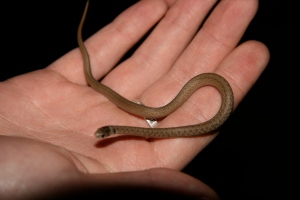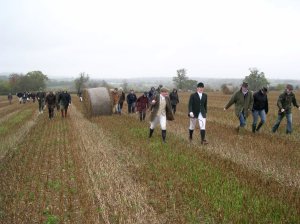Imago Dei, Grabbling, Garden Snake
March 24, 2009
Foxes from the last several days:
· I talked to a good friend from Nashville on Sunday night. How strange it is to know someone your whole life yet only brush the surface. Each one of us is a mystery. Each one of us is created Imago Dei—in the image of God. I’ve known her my whole life, yet “for who among men knows the thoughts of a man except the man’s spirit within him? In the same way no one knows the thoughts of God except the Spirit of God.” We surprise each other, we surprise ourselves. Our minds and bodies both make us human. Together they contain the galaxies of our souls. What a simple pleasure to make forays into someone else’s galaxy!
· This friend and I are both writing children’s books. Mine is entitled “Grabbling.” I drew from a story that my grandmother tells about fishing with her hands in Mulberry Creek. When I read the first draft to her, she just laughed and laughed—one of my favorite sounds. Putting the story down on paper and thinking about it brings me great pleasure. Also, the prospect of receiving Rachel’s book in the mail to read for the first time. E-mail, cell phones, Facebook, and Twitter are poor substitutes for receiving a package in the mail.

· I spoke briefly with my friend John tonight. He and I haven’t talked since Christmas. When I think back over a sequence of minute events over the past two weeks that led to our conversation, I remember that I no longer believe in coincidence. We needed to talk, simple as that. Some of my stories and scars may give him hope. Thick trees and cool grass and bright flowers put down roots in the scorched places of our hearts. Ash feeds the soil. Our suffering feeds our own sanctification and can even be a catalyst for healing in other people’s lives.
· A tiny garden snake on the sidewalk in front of the house.
· A pedal falling off my bike and Lindsay coming to pick me up.
· Listening to my friends Aron Wright and Daniel Ellsworth play the WDVX’s Blue Plate Special.
· Eating the last of Justin’s candy cigarettes.
Ambergris
March 3, 2009
I have resisted blogging. It’s too popular. The internet has enough mush without my awkward starts and stops. I put up a few posts on my now weed-choked Myspace account, but too many recovering sorostitutes with web-cams wanting to be my friend milked my patience and my checkbook. Just kidding.
Obviously, I caved. I need a writing rhythm. I don’t want to look back two years from now and realize I’ve neglected my passion. My Myers-Briggs profile is ENFP. Apparently, I get very excited about dreaming up projects but leave them half-finished on a hardrive or dusty in a journal at my parents’ house. Mr. Myers and Mrs. Briggs also informed me that if I follow through, the results can be spectacular. So, here’s to spectacle.
I hope people will read what I write. Why put writing on the World Wide Web if I don’t intend for strangers to read it? I hope my writing will be worth their time.
Here’s a paragraph from Chapter 92 in Moby Dick, which I read for the first time this past summer:
“Ambergris is soft, waxy, and so highly fragrant and spicy, that it is largely used in perfumery, in pastiles, precious candles, hair-powders, and pomatum. The Turks use it in cooking, and also carry it to Mecca, for the same purpose that frankincense is carried to St. Peter’s in Rome. Some wine merchants drop a few grains into claret, to flavor it.
Who would think, then, that such fine ladies and gentlemen should regale themselves with an essence found in the inglorious bowels of a sick whale! Yet so it is. By some, ambergris is supposed to be the cause, and by others the effect, of the dyspepsia in the whale.
…Bethink thee of that saying of St. Paul in Corinthians, about corruption and incorruption; how that we are sown in dishonor, but raised in glory.”
Melville can be a bit long-winded. Let me recap. Either as a result of indigestion or to aid in digestion, sperm whales develop a substance called ambergris that some enterprising dandies in Europe and beyond began using as a fixative in perfume to make the fragrance last longer.
What does this have to do with anything? Ambergris is to sperm whales what belching is to college-age males. Yet, ambergris sells for $10 or more per gram, and may be in lumps of 50kg (100lbs.) or more. Do the math. Ambergris is precious. Reread the last sentence of the Melville passage. Our suffering becomes our glory. Our suffering is precious because of what it becomes, what we become if we cling, as I do, to the belief that suffering can be redemptive.
I don’t want to suggest that I have the answer to the problem of suffering in the world. “Why?” I have asked God. He met me with silence. We have two responses. We can dismiss God entirely, or we can cling to Him as Job did.

Case in point: Seth Godin
February 24, 2009
Yesterday, for “One dirty diaper at a time,” I wrote about the discipline of writing, the writing craft. Doing anything well requires practice. Practice takes years of concentrated effort.
Well, persistence—one blog post, one dirty diaper at a time—has paid off for Seth Godin. He’s written 3000 posts without missing a day. That’s nose to the grindstone every day for over eight years. Granted, he enjoys himself, but that doesn’t diminish his achievement.
Congratulations, Seth, and thank you for your example.
The rest of you, do yourself a favor and subscribe to Seth’s blog. You’ll be challenged and inspired.
One dirty diaper at a time
February 23, 2009
I started blogging because I got a full-time job at Morris Creative Group—a marketing, advertising, and branding firm—and I thought that making regular posts would be a good way to keep the rust knocked off. My senior year of college, I wrote a term paper about T.S. Eliot’s poetics. I read his poetry, especially Four Quartets, and his essays on poetry and writing poetry.
What I learned while writing that paper has stuck with me. Eliot taught me that writing a good poem takes practice. Writing is like any other discipline, meaning that it’s a discipline. Chances are, you’ll only see the fruits or rewards of your many hours of hard work years down the road.
Rather than discourage us, though, Eliot’s insights offer some good news. Good writing is not some mystical occurrence to which some people gain access by stroke of fate or from which others are excluded.
Stay at it long enough, and you will improve. Invest enough gumption, sweat, and time, and you will become a proficient writer.
Eliot talks about the dual trajectories of craft and experience. Unless you take care to hone your craft, even if that means producing a canon of doggerel, you will not have the skill necessary to capture a truly significant experience. Eliot believes that five to ten years must pass before we’ve given ourselves the chance to accumulate these transformative experiences.
The question is, are you willing to take a little time every day for the next five years in hopes that you have built up enough literary muscle to lift that boulder into the light? Are you willing to accept the mundane task of dogged day-to-day effort, knowing that the payoff may be years in the future?
The answer for most of us is no.
I’m convinced, however, that most people who publish books and enjoy a positive critical and public reception are not necessarily the naturally gifted writers who sit down when the muse strikes. They are people who carve out a half hour here and there to put pen to paper, fingertips to keypad.
What stands between you and a noteworthy achievement is your lack of discipline, not your lack of inborn talent and ability.
Sure, Shakespeare was a genius and he worked hard at it. Keep in mind, we know he was a genius because he worked hard at it. People will remember you for what you actually do, not for your potential.
Now, go change the world. One writing exercise at a time. One brick at a time. One dirty diaper at a time.
*For more of this kind of stuff, read a post I wrote at work.
Why are we here?
February 21, 2009
Oxford

Wycliffe Hall, Oxford
During the fall semester of my senior year, I studied in Oxford, England, at one of Oxford University’s colleges called Wycliffe Hall. The college takes its name from John Wycliffe, who was killed for translating the Bible from Latin into English.

Kieron Winn
These months spent living on Pullens Lane were some of the best of my life: chronically late and riding my red bike helter skelter down High Street to discuss my unfortunate use of “inflated rhetoric” with the English poet Kieron Winn or 18th-century novels with a lovely Canadian woman named Emma Plaskitt, who worked as an editor at Oxford University Press; drinking cups of Lapsang Souchong and eating scones with clotted cream and jam at the Q Bar while critiquing poems with my dear friend Nathan Sytsma, now earning his Ph.D. at Yale; and before I forgot one of the strangest events of my life, tagging along to a hare coursing.
A Hare Coursing
Everyone was wearing tweed, neckties, Wellingtons, and Barbour oilcloth jackets. Rain fell on us all day. The “hounds”—or what I call “beagles”—chased “hares”—or what I call “rabbits”—across sodden fields while all of the participants—us—passed around a big bottle of port and a little flask of Laphroaig, a very peaty single malt from Islay. I met Jules, a counter tenor who lived in London. I met Andy, who was apparently royalty in an Asian country who name I forget.

A hare coursing on a rainy day outside of Oxford.
The beagles eventually found a gap in a fence and went AWOL. We didn’t receive this news until we had fled indoors to the only pub in the middle of all that pastureland and were burning on fingers on “chips”—what I call “french fries”—amidst the aromas of wet wool, beer, and the sour-sweet musk of human bodies that have been outside all day.
We piled back out into the rain then stuffed ourselves into a tiny car to drive on muddy country lanes in a futile effort to help people I did not know locate their pack of rogue hounds. Eventually, we did see the smeared outline of the head huntsman, or whatever you call him, in his white jodhpurs and short green velvet jacket. His name? Crispin?
Thankfully, we learned from him that someone better acquainted with the area and better equipped for the task at hand had rounded up the wet mass of canine who didn’t catch a single hare that day. Somehow, I was okay with missing the sight of their dismembering and devouring him. Oh well.
We ended up at an ancient farmhouse with stone-floored stables and heavy wooden furniture polished from years of use. Here an older English couple asked us questions about the day and fed us scones and sandwiches and pushed cups of hot tea into our cold hands. I flirted with several girls I didn’t know who went to elite boarding schools in cities that I pronounced incorrectly. How was I supposed to know that “Winchester” wasn’t pronounced WIN-chess-ter but something like WEENches-tuh? Again, oh well. There wasn’t much competition anyway. Most of the English girls I met loved American men. I figured that must be because most of the English men I met looked like they’d crumble if they broke into a run.
Purple Turtle
When I got back to the States, I wrote an essay for a contest put on by the Council for Christian Colleges and Universities,the organization that runs the program. They gave me 2nd place. The winner wrote a proem, that I thought was neither good prose nor good poetry. I was probably just bitter though.
The following is an excerpt from that essay:
“Dancing is like anything else: the more seriously you take yourself, the less seriously everybody else takes you. I struck up conversation with a girl, who, like everyone in Oxford it seemed, turned out to be an American. After the customary questions—Where are you from? What school? Where is that? What are you studying?—our conversation petered out. As she stumbled away to the bar or restroom, she yelled over her shoulder: ‘English majors don’t know how to party!’
…
This will be my vocation; a constant struggle of constant change, Jacob’s wrestling with the angel and my wrestling with the Spirit: using words, literature, and my life to share the Good News. This is what Christian English majors do. This is how we party.”
The full two-page essay is still online. I’d completely forgotten about it until two or three days ago.
Funny, I’m still asking and answering the same questions: “Why do I write?” and “Why are we here?”